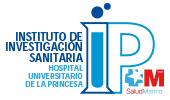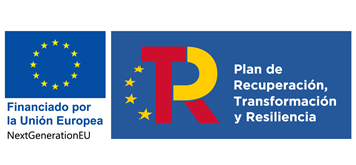Intercellular communication in inflammatory response
Group Information
Lymphocytes function by communicating with other cells. They form specific immune synapses (IS) with antigen-presenting cells (APC) and secrete soluble mediators. During synapses, the exosome nanovesicles produced by multivesicular bodies (MVBs) act as “shuttles”, transferring specific mediators, including microRNAs (miRNA), to target cells.
The formation of immune synapses is triggered by stimulation through the T-cell receptor (TCR). Post-TCR signalling pathways connect to the actin and tubulin cytoskeleton networks that control the spatial and molecular architecture of the IS. One of these elements is the centrosome or MTOC (microtubule-organising centre). The MTOC controls the secretion directed towards the APC by juxtaposing the Golgi apparatus and endosome compartments to the T:APC contact zone . MVBs participate in this system for intracellular transport and distribution of mediators.
Our group aims to define the connection between TCR activation and actin cytoskeleton reorganisation and organelle transport, the delivery of specific mediators to APC and other target cells, and the functional consequences of this form of cell-cell communication on the inflammatory immune response.
Lines of Research.
The group pursues three main lines of research.
1.- Regulating the formation and function of the immune synapse. Protein immune complexes in the MTOC are being explored, specifically the role of folding of MTOC complexes, post-translational modifications by Ser/Thr kinases and HDAC6 tubulin deacetylase. Mechanisms controlling mitochondrial transport during leukcocyte-endothelium adhesion and extravasation and maturation of IS will be addressed. The role of mitochondrial components in the biogenesis and secretion of exosomes, and their impact on the function of macrophages and dendritic cells are also being analysed.
2.- Biological adjustment of T cells by miRNAs and exosomes. The production of exosomes by different subtypes of T cells is being examined with the aim of identifying and characterising specific miRNAs aimed at target cells. The molecular mechanisms underlying the specific distribution of proteins and mRNAs to exosomes are also being investigated. This information could allow the design of immune cells that produce exosomes capable of specifically modulating the immune response.
3.- Immunoregulatory molecules and miRNAs in inflammatory disease. The role of different immunoregulatory molecules such as CD69, galectins, amino acid carriers and HDAC6 in animal models of atherosclerosis and psoriasis as well as those diseases in humans is being analysed with the idea of identifying the molecular bases of these inflammatory diseases.
Team members

Group leader: Francisco Sánchez Madrid. Hospital Universitario La Princesa. Universidad Autónoma de Madrid. |
Other team members:
|
Projects
Sánchez Madrid, Francisco. Immunoregulatory molecules as biomarkers predicting response to biological therapies and disease severity in immune-mediated inflammatory disorders. BIOMID PROJECT. PIE13/00041. Coordinated project. ISCIII. 2014-2016.
Sánchez Madrid, Francisco. GENTRIS: Mechanisms of MTOC guidance and genetic transfer at the immune synapse: novel modes of immune-modulation. ERCEA-AdG-2011-294340_GENTRIS. European Research Council. 2012-2017.
Sánchez Madrid, Francisco. INDISNET: Molecular and cellular networks in inflammatory disease. S2010/BMD-2332. Coordinated project. CAM. 2012-2015.
Sánchez Madrid, Francisco. RECAVA: Cardiovascular Research Network. RD12/0042/0056. ISCIII. 2013-2016.
Sánchez Madrid, Francisco. Immunoregulatory molecules in inflammation: function of exosomes in cell-cell communication. SAF2014-55579-R .MINECO. 2015-2017.
Sánchez Madrid, Francisco. Discovery of innovative antitumoral drugs directed against oncological targets: topoisomerase system and regulation of the INMUNOTOP immune response. RTC-2016-4611-1. MINECO. 2016-2019. Payee: PHARMA MAR, S.A.
Sánchez Madrid, Francisco. Discovery, validation and implementation of biomarkers for precision oncology. PIE15/00068. Coordinated project. ISCIII. 2016-2018.
Sánchez Madrid, Francisco. Immunoregulatory molecules and miRNAs as targets in coronary heart disease and acute coronary syndrome. 281/C/2015. Fundaciò La Marato de TV3. 2016-2018.
Alfranca González, Arantzazu. Immunotherapy in non-small-cell lung carcinoma: tumour heterogeneity as a response conditioner. PI15/01491. ISCIII. 2016-2018.
Sánchez Madrid, Francisco. Platform for Innovation in Medical and Healthcare Technologies. PT17/0005/0018. ISCIII. 2018-2020.
This grant is funded by the 2013-2016 Spanish Science, Technology and Innovation Research Plan and the ISCIII – Subdirectorate General for Evaluation and Promotion of Research – and co-financed by the European Regional Development Fund, Operational Programme Smart Growth 2014-2020 according to Regulation (EU) no. 1303/2013.
Sánchez Madrid, Francisco. CIBER Cardiovascular Diseases. CB16/11/00272. ISCIII. 2017-2018.
Sánchez Madrid, Francisco. Immunoregulatory mechanisms in cell-cell communication: Synaptic contacts promoting a State of Alert in Immune Cells. SAF2017-82886-R. Spanish State Research Agency. 2018-2020.
Publications
Villarroya-Beltri C, Gutiérrez-Vázquez C, Sánchez-Cabo F, Pérez-Hernández D, Vázquez J, Martin-Cofreces N, Martinez-Herrera DJ, Pascual-Montano A, Mittelbrunn M, Sánchez-Madrid F. Sumoylated hnRNPA2B1 controls the sorting of miRNAs into exosomes through binding to specific motifs. Nat Commun 2013. 4: 2980-0. FI: 10.742(Q1). PMID: 24356509. DOI: 10.1038/ncomms3980.
Mittelbrunn M, Sánchez-Madrid F. Intercellular communication: diverse structures for exchange of genetic information. Nat. Rev. Mol. Cell Biol. 2012. 13: 328-335. FI: 37.162(Q1). PMID: 22510790. DOI: 10.1038/nrm3335.
Martín-Cófreces NB, Baixauli F, López MJ, Gil D, Monjas A, Alarcón B, Sánchez-Madrid F. End-binding protein 1 controls signal propagation from the T cell receptor. EMBO J 2012. 31: 4140-4152. FI: 9.822(Q1). PMID: 22922463. DOI: 10.1038/emboj.2012.242.
Mittelbrunn, Maria, Gutierrez-Vazquez, Cristina, Villarroya-Beltri, Carolina, Gonzalez, Susana, Sanchez-Cabo, Fatima, Angel Gonzalez, Manuel, Bernad, Antonio, Sanchez-Madrid, Francisco. Unidirectional transfer of microRNA-loaded exosomes from T cells to antigen-presenting cells. Nat Commun 2011. 2: 282-0. FI: 7.396(Q1). PMID: 21505438. DOI: 10.1038/ncomms1285.
Baixauli, Francesc, Martin-Cofreces, Noa B., Morlino, Giulia, Carrasco, Yolanda R., Calabia-Linares, Carmen, Veiga, Esteban, Serrador, Juan M., Sanchez-Madrid, Francisco. The mitochondrial fission factor dynamin-related protein 1 modulates T-cell receptor signalling at the immune synapse. EMBO J 2011. 30: 1238-1250. FI: 9.205(Q1). PMID: 21326213. DOI: 10.1038/emboj.2011.25.









